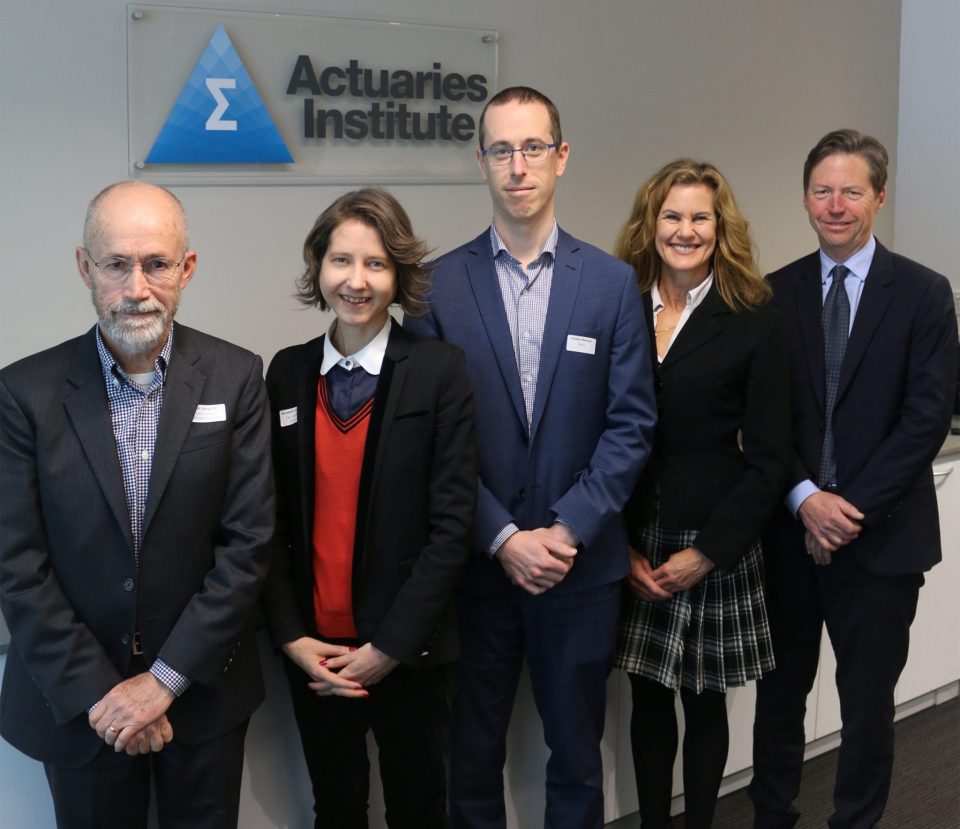
CRO Forum 2019
The fifth Insurance CRO forum was held at the Actuaries Institute on Thursday 29 August 2019. ‘Royal Commission – What’s next?’ was the theme for this year, with three engaging plenary sessions. We had no shortage of lively, quality discussion, and in many ways wished the half day was longer. The forum was facilitated by Verne Baker (Director, KPMG) who opened the forum with a formal welcome and Acknowledgement of Country.
The plenary sessions were as follows:
- Making Sense of Cultural Risk by Elizabeth Arzadon (Managing Director, Kiel Advisory Group)
- Social Condition Report by Ian Laughlin (Chairman, ANZ Lenders Mortgage Insurance) and Hadyn Bernau (Principal, Finity Consulting)
- How the Royal Commission outcomes are influencing the Board agenda (Elaine Collins, Non-Executive Director)
Chatham House Rule was in effect during the forum. While we cannot attribute comments to those in attendance, below are some of the key highlights of the discussions.
Recommendation 5.6 Changing culture and governance is the centrepiece of the Royal Commission’s Final Report. Commissioner Hayne recommended that financial services entities should take proper steps to assess their culture and governance, identify any problems, deal with those problems and thereafter determine whether the changes made have been effective. The Royal Commission has clearly put risk culture at the forefront of Board agendas.
‘Risk culture’ refers to day-to-day behaviour which develops within an organisation and either helps or hinders risk management outcomes. Interestingly, it was noted that one of the reasons risk culture has been a difficult topic to get right is that risk experts do not know culture and culture experts do not know risk.
We were introduced to a proposed risk culture framework, in which transparency and challenge lie at the heart. In simple terms, do staff feel safe to raise issues and divergent perspectives?
Key dimensions of risk culture, amongst many, include:
- Tone from the top – e.g. Are leaders setting clear expectations and walking the talk? On what issues does senior management focus their efforts? This is of course impacted by the external environment such as the recent Royal Commission
- Accountability and consequences –e.g. Are there fair and commensurate consequences to underlying actions? No doubt this will be assisted by the BEAR regime
- Capability – e.g. Do staff understand the basic principles underlying the risk framework
- Motivation – e.g. What drives staff’s behaviours? Are the drivers aligned with the espoused values of the organisation?

Plenary speakers Ian Laughlin (L), Elizabeth Arzadon, Hadyn Bernau, and Elaine Collins pose alongside forum facilitator Verne Baker (R).
Given the subjectivity inherent in any risk culture, a wide range of data is required for robust analysis to enable Boards to understand the behavioural norms of their organisations. Once an organisation’s current risk culture is understood, the even more important task for Boards is to decide how to shift their organisations’ culture going forward.
This is particularly important in the context of society’s increasing expectations. Our ability to call out unacceptable practices and highlight poor outcomes has become much more powerful through the pervasive use of social media.
The risks that come from changing social attitudes and norms and the power of new social capabilities can be known as social risks[1]. Boards need to monitor and interpret, aka sense, these risks. In essence, ‘social risk sensing’ identifies the issues that matter, finds those which truly influence the key issues and assesses those influencers. Given that an entity’s social condition is no less important than its financial condition, it is argued that it would be valuable for organisations to produce a Social Condition Report, in addition to the Financial Condition Report.
We were presented with a mock Social Condition Report on a hypothetical entity, which assessed the social condition of the entity and its associated risks, social goodwill/capital, and recommendations of how to build and protect its social goodwill/capital.
A key question we grappled with was “who should prepare the Social Condition Report?” As expected, the room of CROs and actuaries came up with quite a number of diverse responses!
We also turned our minds to how Board agendas had evolved post Royal Commission. These are also partly reflective of the Report of the Prudential Inquiry into the Commonwealth Bank of Australia, which was noted as being considered by many non-executive directors as their “Bible”. Some of these are set out below.
- Increased focus on the lens of the customer e.g. What is the value add to the end customer
- Consideration of disparate sources of stakeholder feedback
- More robust monitoring of dispute resolution and outcomes
- Consideration of what staff are actually doing versus what is specified in the policies
- Questioning whether governance policies are written in a manner that frontline staff can understand and remember
- Having regular Board reflections on whether sufficient time is spent on non-financial risks
- Boards are keen to have input into the early development of risk frameworks and strategy. CROs should not be afraid to bring an under-developed risk management framework to Board risk workshops for robust debates and discussions with directors, rather than to come with a fully developed framework and seek Board approval.
The forum concluded at 1:30pm with a light lunch.
Thanks to the plenary speakers, Organising Committee (Gavin Pearce, Catherine Dube and Liz Gemmell) and Actuaries Institute for making this event a success.
[1] For details, refer to Ian Laughlin’s Dialogue Paper “Social Risks – for a financial services business” https://actuaries.asn.au/Library/Miscellaneous/2018/TheDialogue4SocialRisksWEB.pdf
CPD: Actuaries Institute Members can claim two CPD points for every hour of reading articles on Actuaries Digital.






